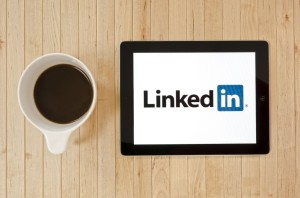Your #Career : These Are 5 Beliefs You Need To Ditch When You’re #JobHunting …When the Going gets Tough, it’s Easy to Succumb to Negative Thoughts. But Try your Best to Get over These Mentalities that Can be Detrimental to your Job Hunt.
We all have different filters through which we see the world that influence our attitudes and behaviors. One filter that is common to many is that of the “victim.” When circumstances become challenging, we sometimes use this “victim filter,” to ease certain ego bruises we experience. This filter leads us to feel victimized by events perceived to be beyond our control.
When going through the interview process, we subject ourselves to all kinds of vulnerabilities that may compel us to play the victim card. This kind of mentality can be especially detrimental when it manifests during a job hunt.
As a candidate, it’s your job to ensure that:
- You’re able to articulate yourself professionally and sell your experiences
- Your professional documents tell a clear and formatted story
- You’re prepared for each interview
If you can’t check these boxes, then there’s work to be done beyond adjusting your attitude. However, if you’re confident that you’ve met the criteria discussed above, and you’re still experiencing interview rejection, it’s important to counter the negative thoughts that may result. Let’s examine some common victim mentalities.
Related:4 Common Assumptions That Kill Your Job Search Before It Even Starts
1. “IF A PERSON I REACH OUT TO FORGETS TO FOLLOW UP, THEY MUST NOT WANT TO HELP”
People are usually well-intentioned and willing to help. Before assuming that someone has dropped off the face of the earth to avoid helping you, consider that they may have simply forgotten, or your approach didn’t work! People get inundated with messages all day, so it’s your job to be thoughtful about standing out.
Consider the following strategies before writing a person off:
- Take the initiative to follow up and nurture your leads
- When reaching out to someone for networking purposes, remember to ask for advice, not a job
- Refine and retry your messaging–a/b test your strategies to see what works
Reframe your thoughts to, “This person forgot to get back to me, but it’s my job to follow up and make a great impression.”
Like this Article ? Share It ! You now can easily enjoy/follow/share Today our Award Winning Articles/Blogs with Now Over 2.5 Million Growing Participates Worldwide in our various Social Media formats below:
FSC LinkedIn Network: www.linkedin.com/in/fscnetwork
Facebook: http://www.facebook.com/pages/First-Sun-Consulting-LLC-Outplacement-Services/213542315355343?sk=wall
Google+: https://plus.google.com/115673713231115398101/posts?hl=en
Twitter: Follow us @ firstsunllc
Question: Want the ‘the best/current articles/blogs on the web’ on Job Search, Resume, Advancing/Changing your Career, or simply Managing People?
Answer: Simply go to our FSC Career Blog below & type(#career, #leadership, #life) in Blog Search: https://www.firstsun.com/fsc-career-blog/
What Skill Sets do You have to be ‘Sharpened’ ?
Continue of article:
2. “I DON’T HAVE THE RIGHT EXPERIENCE, SO I WON’T BOTHER APPLYING”
Job descriptions often set out a wish list of qualities required of candidates that are more aspirational than mandatory. Though you might not have the years of experience, your skill set might nonetheless still fit the bill for a given position. Less experience also means a lower pay grade, which can be an advantage for an organization.
Break the job description down into tasks, and if you feel you could succeed in each area, don’t hesitate to apply.
Reframe your thoughts to, “I can’t change my work experience, but if I get rejected at least I went for it!”
Related:Recent Grad With No Job? Here Are 7 Strategies To Get Hired Faster
3. “JOB HUNTING IS HARD FOR SOMEONE LIKE ME”
Whether you’ve been laid off, fired, or left a job, it’s tempting to think that you’re the only one struggling. You need to acknowledge that job hunting is hard for everyone; and you can’t pretend that there won’t be rejection involved. “You’ll need to build the confidence to move on from setbacks and get back on the horse,” says Work & Life Coach Minda Miloff. It’s important to fill your life with meaningful hobbies and projects, so when a challenge presents itself in one area, your confidence remains intact!
Reframe your thoughts to, “Job hunting is hard for everyone. I will show empathy and help those in their job search whenever I can.”
Related:What You Can Look Forward To After Giving Up On Your “Dream Job”
4. “I’VE BEEN REJECTED FROM SO MANY JOBS–IT’S NOT FAIR!”
When an organization makes a choice about who gets the job, the decision may not always be based on criteria that is transparent to you. Though the outcome might not be what you hoped, there is always something to learn and a tangible skill to be gained through each interview, says Miloff. Assume that the competition is stiff, and you can’t predict how things will unfold. Focus on what you can learn from each interview, and use that to drive yourself forward.
Reframe your thought to, “I’ve been rejected from so many jobs, but I’ve learned from each rejection, and I know that all it takes is one person to say yes.”
Related:One LinkedIn Employee’s Insider Tips For Job Searching On The Sly
5. “I’M NEVER GOING TO LAND THE JOB I WANT”
While you need to project the confidence that you’ll be successful, it’s important to monitor your expectations and be realistic that there is a chance things won’t work out. Interviews should be viewed as a performance about “delivering the best of who you are on the spot,” says Miloff. At some point, you have to say, “I did my best,” and that’s a helpful countermeasure to feeling knocked down.
Reframe your thoughts to, “I will land the right job eventually. I accept that it might take time, commitment, and grit on my behalf.”
It’s normal to indulge in some necessary pity parties. However, career development requires mental toughness, strength to recover, and self-awareness to recognize your own weaknesses or alternatives for why things didn’t work out. Rejection is an unavoidable part of the process, and so the quicker you learn to bounce back and re-strategize, the more success you’ll find!
FastCompany.com | May 3, 2018 | BY STACY POLLACK—GLASSDOOR 4 MINUTE READ










